Answering Commonly Asked Questions About The Nonbinary And The Genderqueer Community
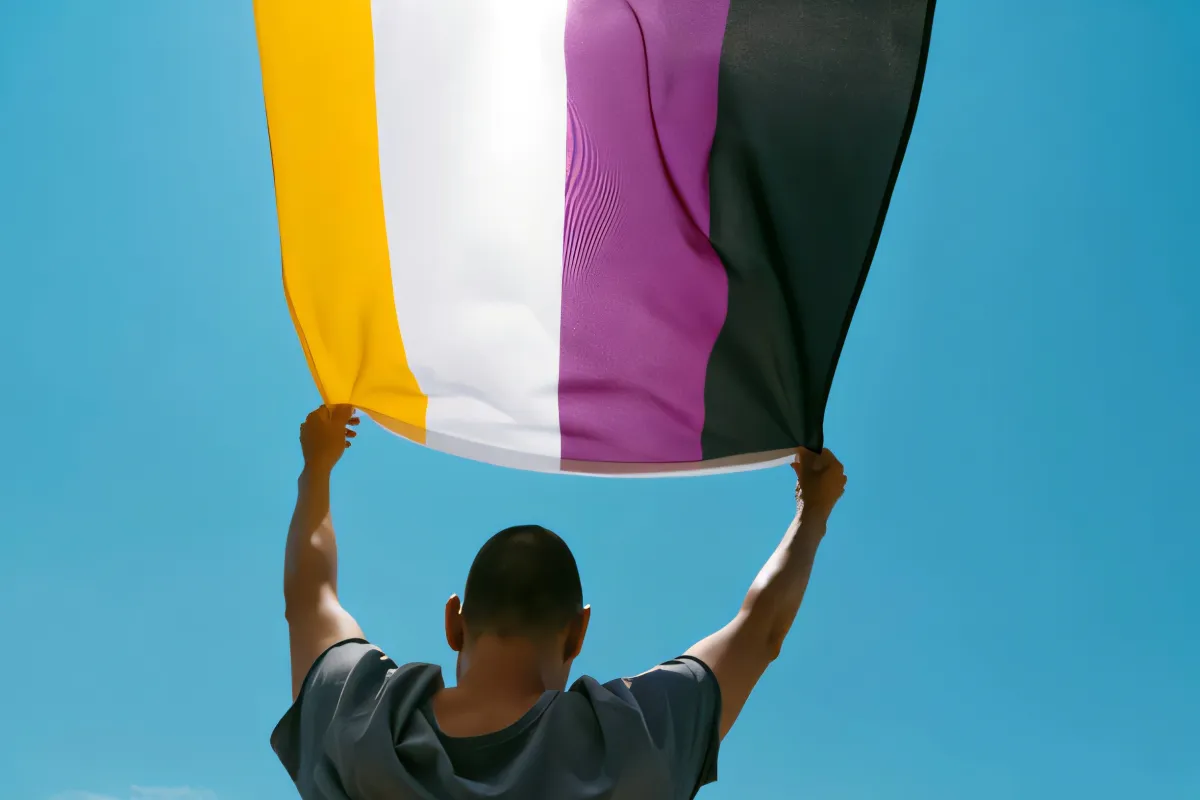
Though more information about the nonbinary and genderqueer communities is being brought to attention, many people still have lots of questions regarding the gender identity spectrum. As someone who identifies as nonbinary, I love answering genuine questions about my community because I want to educate people who have no other way of knowing really.
Here are just a few common questions that I've either received or heard from somewhere else. If you have any other questions please feel free to reach out to me and I'll be happy to get back to you!
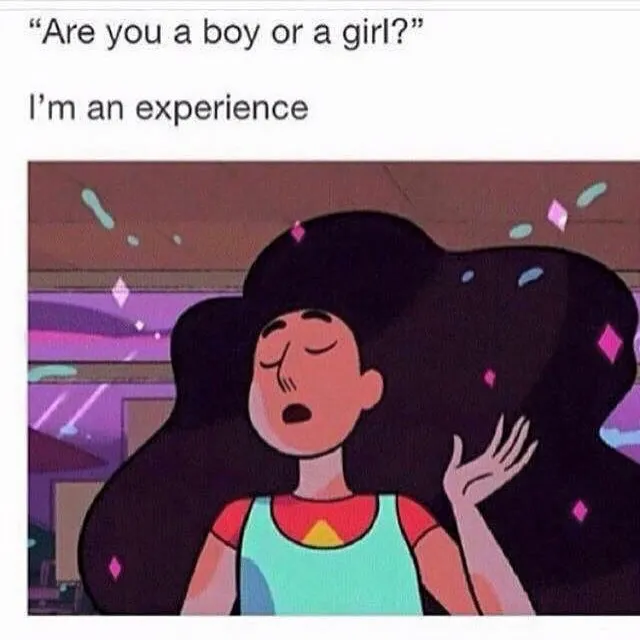
Are you a boy or a girl?
Depending on how this question is asked, it can sometimes come off as rude or insensitive. I can usually tell when someone is asking with genuine curiosity and want for knowledge or when someone is asking to try to get a rise out of me.
This is a very common, if not the most common question asked of genderqueer people. I understand it, I really do. Our society is so deeply rooted in the idea that there are only two genders and anything that isn't male or female is out of wack.
My answer to this question is neither. I don't identify as a boy or a girl I simply identify as me or as a person to put it simply. Some other genderqueer people may tell you that they identify as both in a sort of fluid way.
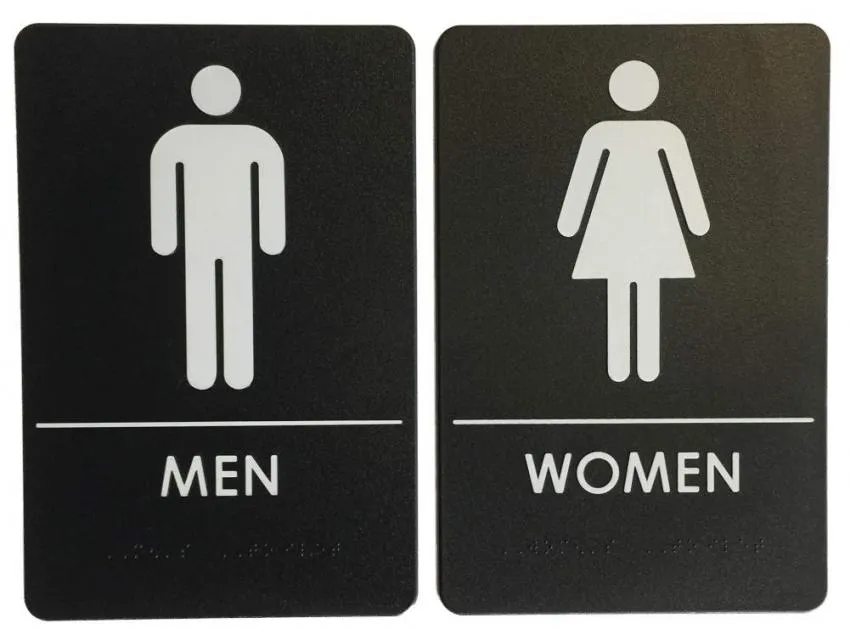
Which bathroom do you use?
Yet another very common question is about the use of public restrooms. Though not everyone who asks this question has mal intent, I often find it to be a rude and invading question. Why is this anyone else's business? Why do you care what bathroom someone else uses?
To answer this question, though, I will usually try not to use public restrooms if at all possible because it makes me quite uncomfortable. If I find that I really have to use the restroom then I will use the female restroom.
I was born a female and I present very feminine because of my size ( I'm 5'0 at 85lbs). I also feel as though the women's restroom is a safer place for any genderqueer person because I've found that women are often more understanding of this subject.
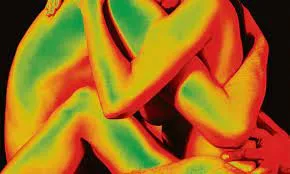
How do nonbinary and genderqueers have sex?
This is another question that I find to be inappropriate simply because it is so invasive and personal. It really is no one's business to know how other people have sex.
Unfortunately, though, I personally can not answer this question because I identify as asexual so I don't partake in sexual activities. If you are curious as to how someone who is genderqueer has sex, I advise you not to ask them.
You can most likely find information online from someone who is genderqueer who is comfortable sharing their story with others, but asking how someone has sex is a very very personal, and often awkward question.
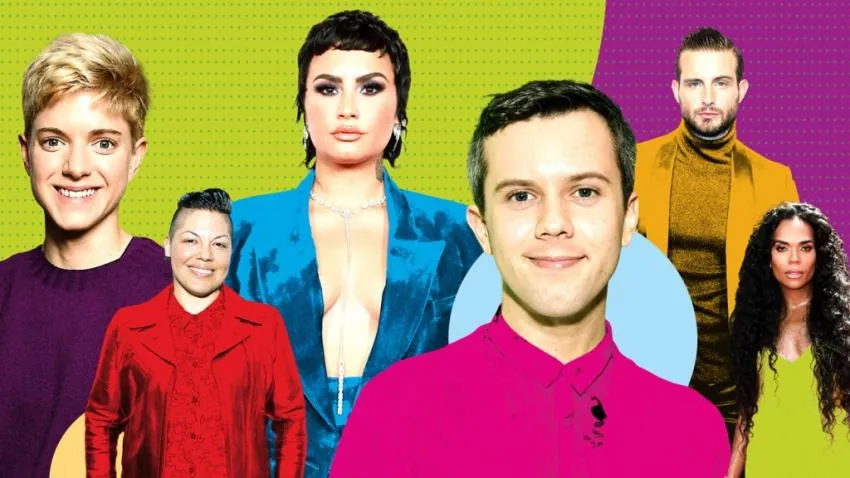
How can you be nonbinary yet look so feminine/masculine?
To put it simply, there is no "right" or "wrong" way to be genderqueer. You don't have to have short hair to be male/non-binary/etc. and you don't have to have long hair to be a female/woman/etc. There is no "right" way to dress either.
You can wear a skirt if you want and still identify as male or nonbinary/etc. and you can have short hair and still identify as female. Dress for yourself and not for what you think others think is right. Wear whatever you want, whatever you feel comfortable in, and whatever makes you happy.
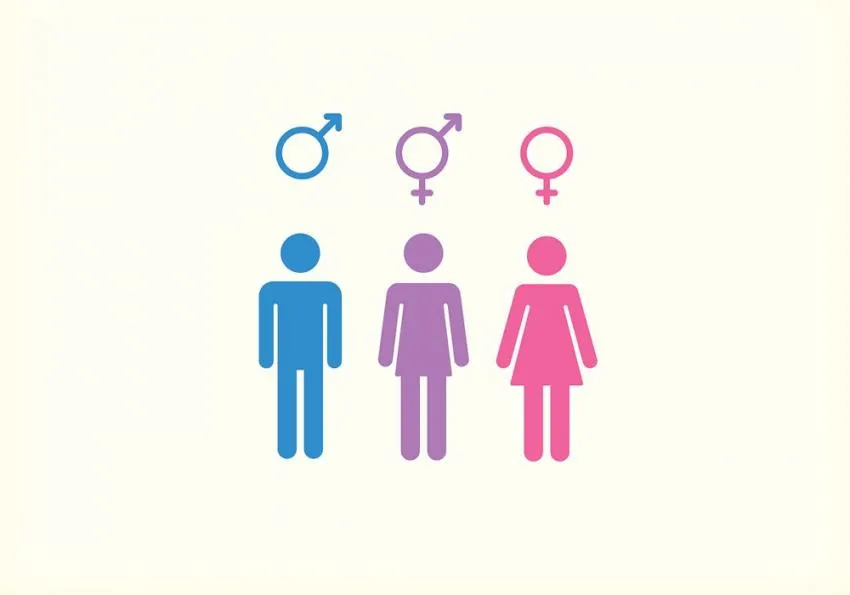
What's the difference between someone's sex and someone's gender?
The word "sex" when regarding gender/etc. is often used professionally as a way to refer to males or females. As far as I know, there are only three sexes: female, male, intersex.
Wikipedia says, "Intersex people are individuals born with any of several sex characteristics including chromosome patterns, gonads, or genitals that, according to the Office of the United Nations High Commissioner for Human Rights, "do not fit typical binary notions of male or female bodies.""
On the other hand, gender means how you see yourself or how you identify. For example, my sex is female and my gender is nonbinary. I was born a female so I am physically a female, but I am not a woman. I am nonbinary.
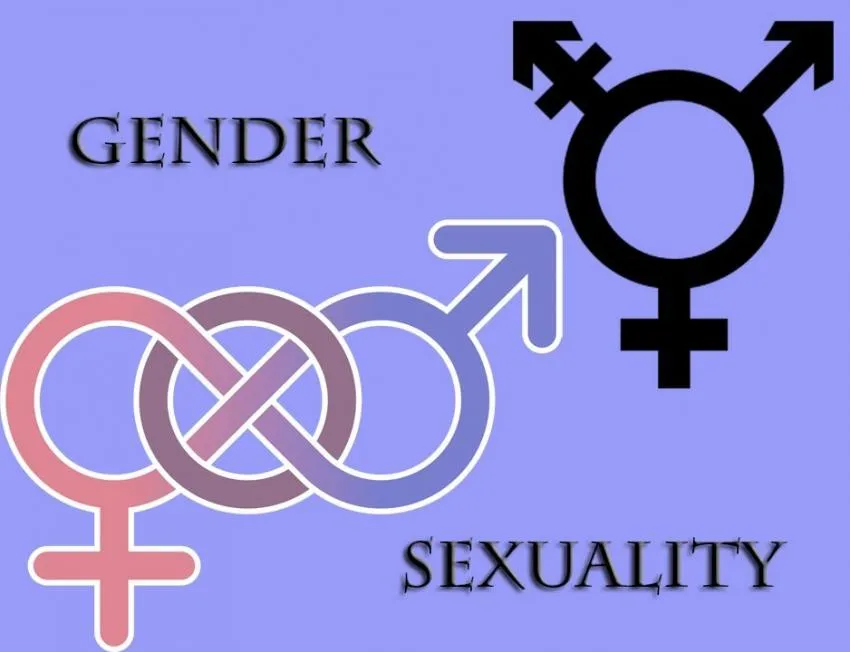
What's the difference between someone's sexual orientation and someone's gender?
Jackie Golob, MS, who works at a private practice at the Centre for Sexual Wellness in Minnesota says, "gender is how you feel about yourself, while sexuality is how you feel about others." Sexuality is who you are attracted to (this includes being straight, gay/lesbian, bisexual, pansexual, asexual, etc.) while gender is who you are (this includes nonbinary, genderfluid, trans, genderqueer, etc.)
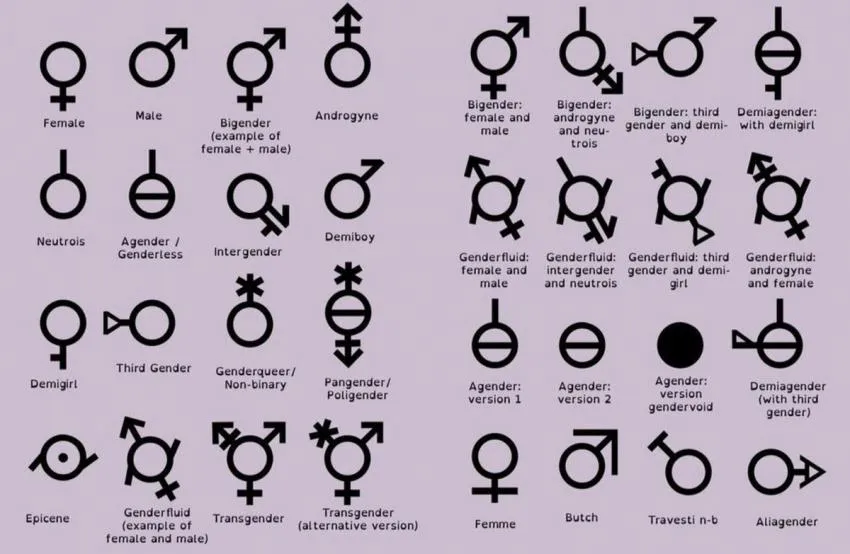
How many genders are there?
Women's Health says there are officially 12, but I (and many others) believe that there is an infinite number of genders. Gender simply has such a wide wide spectrum that there really is no way to say. There also is no way to identify "correctly" because you should identify as however you feel and as what makes you feel most comfortable.
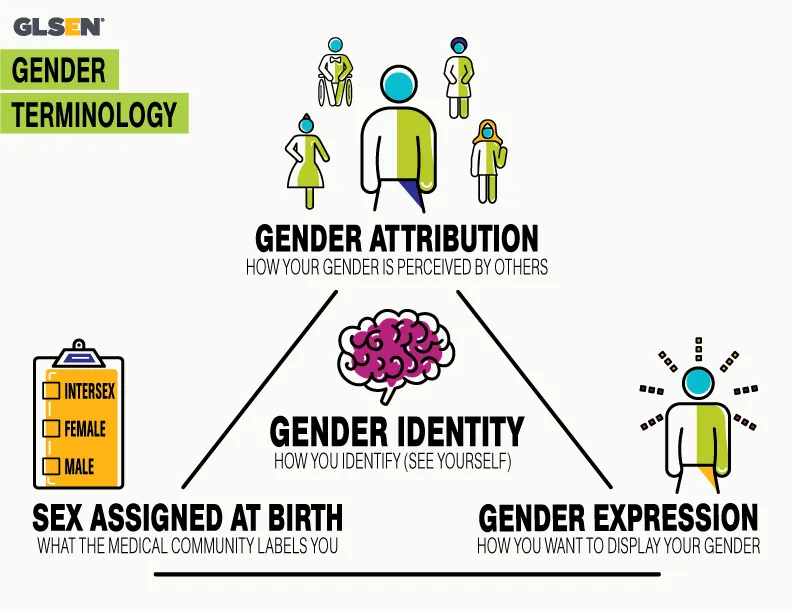
Are gender identity and gender expression the same thing?
Someone's gender identity is simply how they identify. They may identify as nonbinary yet express themselves in a more feminine or maybe more masculine way. Gender identity is what is on the inside whereas gender expression is on the outside (mostly just your clothes and your hair).
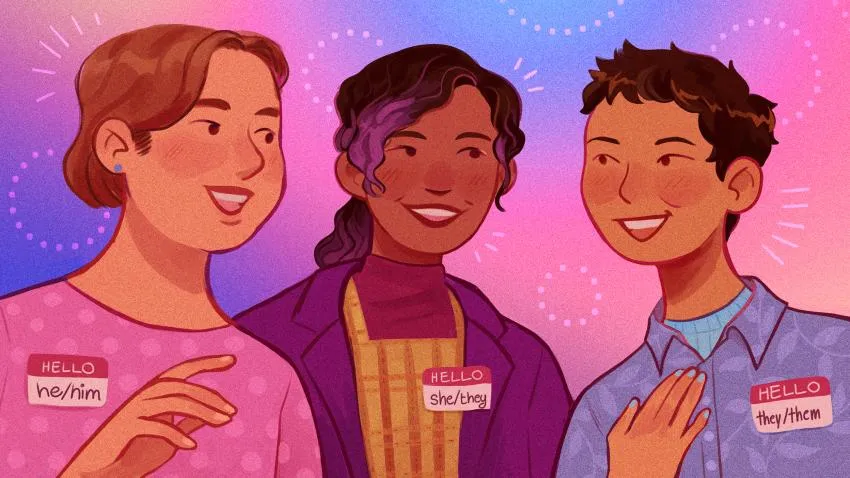
What do I do if I can't tell someone's gender identity?
The best option for when you can't tell what gender someone is is to ask them. While there may be people who get offended by this question, I have found that most are not (plus when someone is nonbinary, genderfluid, etc. they are very happy to have you ask them instead of assuming).
Some circumstances, however, might not allow for you to ask. I think, in this case, the best thing to do is not assume. When referring to them or maybe even addressing them try not to use girl/boy or other phrases like bro/gal/guy/fellow/gentleman/honey or sweetheart (as these are often used for females) etc.
Also, if you aren't sure then that means they are more likely to not be cis (the gender you were given at birth) so it's better not to use conventionally gendered words. Another thing is that it doesn't hurt anyone, whether they be cis or genderqueer, to use gender-neutral phrases.
Some examples may include y'all, everyone, this/that person, partner or significant other, parent, sibling, etc. (some of these quite obviously should not be used for strangers).
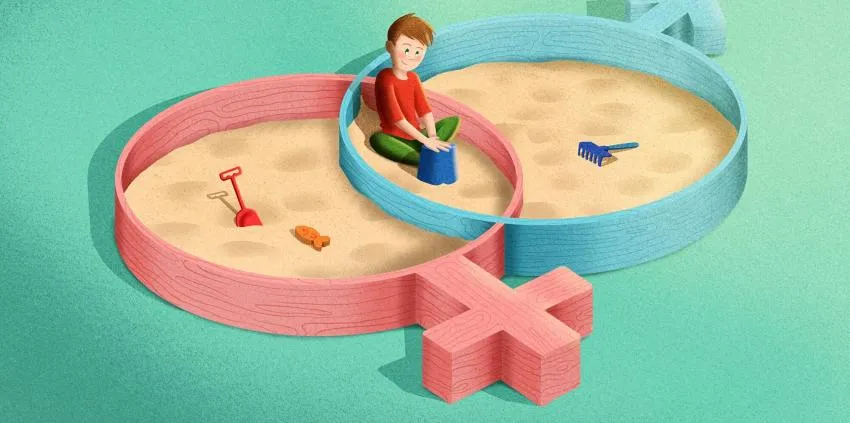
Does the way someone is raised have an effect on their gender identity?
I can confidently answer this question with; no.
I grew up in a pretty conventional household while I was growing up. My dad worked full-time while my mom stayed at home for most of my childhood. I had two sisters and one older brother.
My brother and my dad would almost always do the shoveling (it snows a lot here) and the mowing and other more physical jobs. My mom would always do the laundry and cleaning and most of the cooking (on special days dad would cook something fancy).
My sisters and I were raised as three little girls. We had barbies, Littlest Pet Shops, Hot Wheels, action figures, etc. I also have a twin sister so I was raised directly with her, we did almost literally everything together. She now/still identifies as a female/woman.
However, growing up it was pretty evident that I was more of a "tomboy" than my sister was. I had quite a few friends that were boys, I played soccer, t-ball/softball, I fenced (that sort of sword fighting), and I played drumset (for whatever reason, drums are considered to be more of a "boy thing") while my sister was an incredible ballerina, didn't care much for other sports, and would often get annoyed with guy friends (we mostly shared friends while we were growing up).
We were really raised the same, however. We were able to pick the activities/sports/etc. that we wanted to do though my parents did start my twin and me doing everything together. Once it was found out that I didn't like dance and my twin didn't enjoy the sports that I did, they promptly took us out of the ones we didn't care for.
In the end, you are who you are from the moment you were born. You've always had your preferences and likes or dislikes. The way you were raised (unless raised poorly or unfairly) doesn't have much to do with how you identify now.
Conclusion
Many people who are not of the LGBTQ+ community do not know much about us which is completely ok. In most cases, it is good to simply ask questions as long as they are considerate and nice. The next best option is to not assume and not be rude.
I encourage you to please share this post on social media as well as with your friends and family to spread awareness.
Opinions and Perspectives
Really helpful guide for understanding and supporting the nonbinary community.
Appreciate how the article addresses sensitive topics with respect and clarity.
The explanation about sex vs gender was particularly clear and helpful.
Never realized how many daily interactions involve assumptions about gender.
Still processing the idea of infinite genders, but the explanation helps me understand better.
Really interesting point about how women's restrooms often feel safer for nonbinary folks.
The section about gender-neutral terms gave me practical ways to be more inclusive.
This information would be so helpful for parents trying to understand their kids better.
Amazing how much language matters in making people feel comfortable and respected.
The twin story really demonstrates how gender identity isn't influenced by upbringing.
Important reminder that personal questions about bodies and relationships aren't appropriate.
Never thought about how asking about someone's bathroom habits is actually pretty invasive.
The part about gender expression versus identity really cleared things up for me.
Wish my school had taught us about this stuff. Would've made things easier for so many people.
This helped me understand why some questions I thought were innocent might actually be inappropriate.
The distinction between genuine curiosity and rudeness is so important to understand.
Great point about how gender-neutral language benefits everyone, not just specific groups.
I appreciate how the article acknowledges that it's okay to not know everything about this topic.
The bathroom issue is still so complicated. We need better solutions in public spaces.
Fascinating how the author addresses common misconceptions without being judgmental.
I'm sharing this with my study group. We were just discussing this topic yesterday.
The section about there being no right way to be genderqueer really resonated with me.
This explains why my friend gets uncomfortable with gendered compliments. I'll be more mindful now.
Would've liked to see more about age and how people discover their gender identity over time.
The comparison between sexuality and gender identity cleared up a lot of misconceptions for me.
I work in healthcare and this information is so valuable for providing better care to all patients.
Anyone else notice how the article emphasizes asking respectfully rather than assuming? That's so important.
The part about gender expression was particularly helpful. I can dress however I want and still be valid in my identity.
This made me realize how many assumptions I make about gender in everyday conversations.
Surprised there wasn't more discussion about pronouns, that's usually a big question.
The personal anecdotes really help explain these concepts. Much better than dry technical explanations.
I wasn't aware that intersex was considered a biological sex category. Learning something new every day.
My workplace recently had training about this, but this article explains it so much better.
Actually, I've found that most people are genuinely curious and want to learn, they just don't know how to ask.
The section about infinite genders still confuses me. How does that work practically?
I never thought about how gender-neutral language could make everyone more comfortable, not just nonbinary folks.
Such a thoughtful approach to answering difficult questions. We need more conversations like this.
Can we talk about how invasive some of these questions are? People need to learn boundaries.
That's exactly what I've been trying to explain to my parents! Sharing this article with them tonight.
Interesting point about how upbringing doesn't determine gender identity. The twin story really drove that home.
This helped me understand why my cousin keeps correcting me when I use the wrong pronouns. I get it now.
The bathroom discussion feels incomplete to me. What about places that now have gender-neutral facilities? That would've been worth mentioning.
I love how the author shared personal experiences. Makes it much easier to understand from a real perspective.
The part about gender expression vs identity was eye-opening for me. I always thought they had to match.
Actually, I disagree with some points here. While I respect everyone's identity, I think the article oversimplifies the biological aspects.
Really helpful explanation about the difference between sex and gender. I never fully understood that distinction before reading this.
I appreciate how this article breaks down complex topics in such an approachable way. The bathroom question especially resonated with me as I've wondered about that myself.
